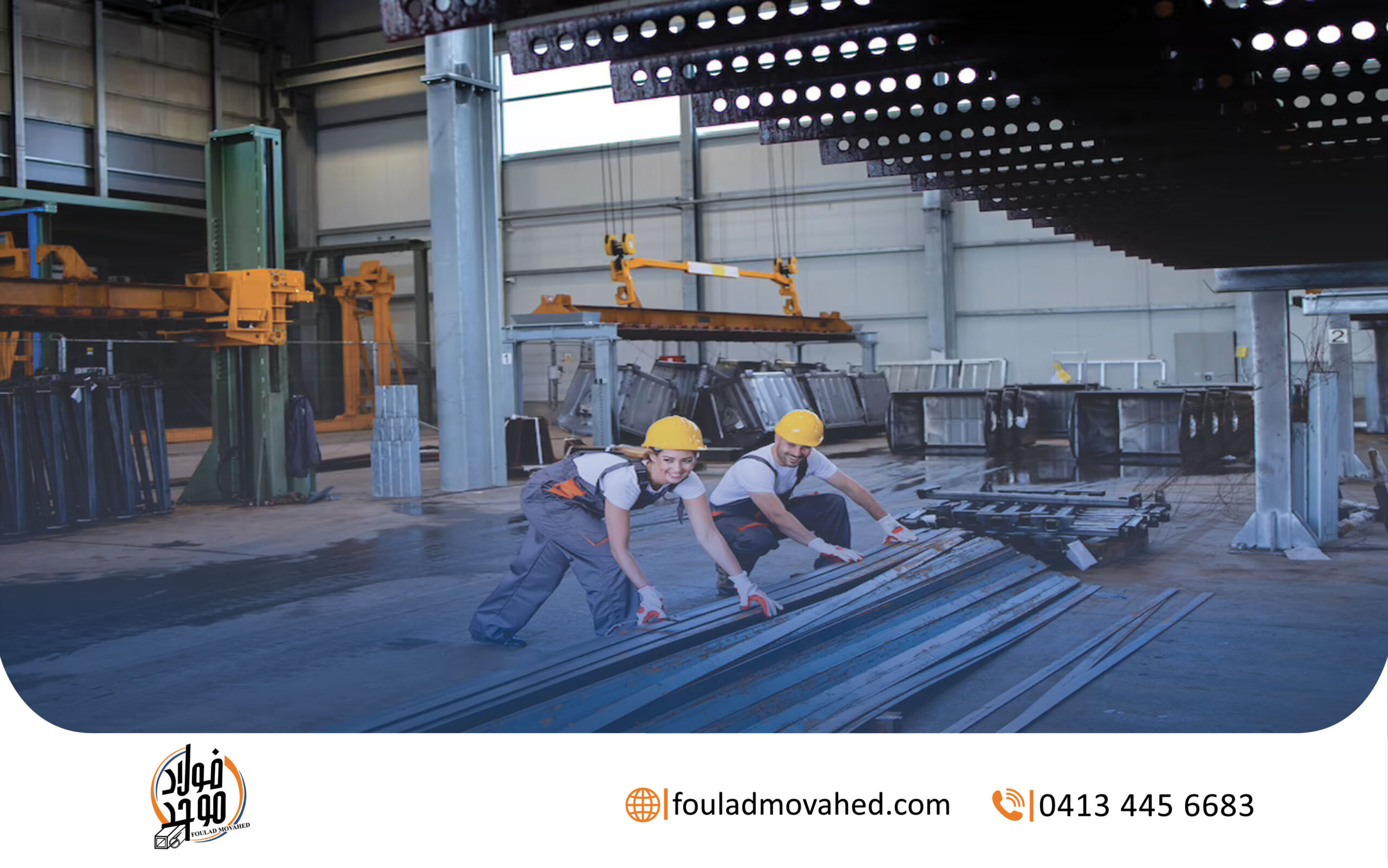Steel products are used in a wide variety of industries. From buildings and cars to electrical appliances and industrial tools, steel is used as a main material. But to use these products effectively, it is necessary to know their standards and technical specifications well.
In this article, we will introduce the standards and technical specifications of steel products.
So, I suggest you stay with us until the end because very important and interesting content is waiting for you.

Technical specifications of steel products
The importance of standards and technical specifications
The use of standards and technical specifications in the production and use of steel products is one of the vital things that has a direct impact on the quality, safety, and sustainability of these products.
From the fundamentals to its impact on the economy and the environment, we will explore all the important aspects of this topic.
Standards: a foundation of quality
• Importance of standards
Standards serve as detailed guidelines for manufacturing, testing, and evaluating steel products. These standards create a certain quality level that guarantees the optimal performance of the products.
• Quality communication
The use of appropriate standards improves the quality of products. Compliance with the standards makes the products have good features such as resistance, flexibility and durability.
Technical specifications: attention to detail
• Definition of technical specifications
Technical specifications include details such as dimensions, materials, and physical properties of steel products.
This information helps to precisely chip products and meet the specific needs of customers.
• Accuracy in production
Compliance with technical specifications makes the production of products more accurate and coordinated. This helps to reduce production waste and increase productivity.
Positive effects on the economy and the environment
• Reduce wastage
The use of standards and technical specifications leads to the reduction of waste of materials and energy in production. This saves money and conserves natural resources.
• Safety and economy
Quality products in accordance with standards guarantee the safety of users. Also, reduced maintenance due to high quality helps the economy.
The effect of education and information
• Knowledge of technical specifications
Educating employees and customers about the technical specifications of products increases understanding and confidence in buying or using products.
• Promotion of standards
Proper promotion and communication about the standards will increase its importance among the industries and the general public.

Technical specifications of steel products
The role of standards in the steel industry
Standards in the steel industry serve as practical guidelines for the manufacture, testing and use of steel products.
These standards help manufacturers to carefully select raw materials, control production processes and provide their products with appropriate quality.
All kinds of standards in the steel industry
In the steel industry, standards play a very important role in guaranteeing the quality and safety of products.
Considering the variety of steel applications in different industries, the importance of using appropriate standards and observing them is very impressive in terms of technical and process.
In the following, we will examine various standards in the steel industry.
Mass standards
• ASTM A36 standard
One of the most widely used mass standards in the steel industry is the ASTM A36 standard. This standard is used for structural steels with proper resistance to pressure and heat.
Alloy standards
• AISI 4140 standard
AISI 4140 standard is used for alloy steels with high resistance to bending and wear. This type of steel is used in all kinds of industrial tools and fittings.
Anti-rust standards
• AISI 316 standard
AISI 316 standard is one of the most famous stainless steel standards. This type of steel is used for environments with contact with water, chemicals and suitable corrosion conditions.
Structural standards
• EN 10025 standard
The EN 10025 standard is used for structural steels with various mechanical properties. These steels are used in the construction of various structures such as: bridges and buildings.
Automotive standards
• SAE J403 standard
The SAE J403 standard is used for steel materials in the automotive industry. This standard determines the compatibility of steel materials with different needs in car parts.
Safety standards
• API 5L standard
The API 5L standard is used for steel pipes used to transport liquids and gases, including oil and natural gas. This standard guarantees the safety and quality of these pipes.
Technical specifications of steel products
In today’s industrial age, steel products play a very important role in construction, automotive, industrial equipment and many other industries.
The technical specifications of these products are very important to ensure their quality, safety and optimal performance. In the following, we will examine various aspects of the technical specifications of steel products.
The importance of technical specifications
Technical specifications of steel products play a fundamental role in determining their use and efficiency.
These specifications include: dimensions, weight, resistance, working temperature, chemical and physical characteristics, etc., which directly affect the quality and performance of the product.
All kinds of technical specifications
In the following, we will introduce various technical specifications.
Dimensions
In this category, the exact dimensions of the product such as length, width, height and diameter are determined.
These specifications are very important to adapt to the user or other equipment in which the product is used.
Mechanical properties
Characteristics such as resistance to bending, stretching, impact and wear are among the important characteristics that are affected by the materials and the production process. These features have a direct impact on the useful life of the product.
The effect of raw materials
Raw materials used in the production of steel products play a very important role in technical specifications.
Different chemical compounds can give the product different properties.
production technology
Different manufacturing processes also directly affect the technical specifications.
The process of heating, shaping and all production steps can determine the final properties of the product.
Standards and regulations
In order to ensure that the products meet the standards and build the trust of customers, it is necessary to comply with certain regulations and standards.
Standards determine various features such as quality, safety and compatibility of products.
The price of the door frame profileRead more
Maintenance and use
Technical specifications can provide guidance for proper maintenance, repair and use of steel products.
Information about allowable temperatures, humidity and storage conditions can significantly contribute to product shelf life.

Technical specifications of steel products
The importance of meeting standards in projects
In the world of projects, compliance with standards is one of the key factors for the success and optimal progress of projects.
Standards are defined as instructions and regulations that are followed in order to do things in a certain way and according to the specified quality.
Please note that in industrial projects, compliance with the standards and technical specifications of steel products helps to reduce the risks of defects and non-compliance and prevents disruptions in the production and use process.
In the following, we will discuss the importance of complying with the standards.
Reduce errors
Compliance with standards leads to the reduction of errors and mistakes in the project process.
Because these standards include solutions and past experiences that help teams avoid past mistakes.
Prevention of future problems
By following the standards, future problems will be avoided.
Because these standards help teams to anticipate obstacles and problems that may arise in the future and take necessary measures.
Reliability of customers
Customers are always looking for reliable and high quality results.
By complying with the standards, it is guaranteed that the product or service provided by the project will meet the expectations of the customers.
Productivity promotion
Standards help teams implement better and more efficient processes.
This leads to increased productivity in the consumption of time and resources and makes it possible to conclude the project faster.
Conclusion
In short, the standards and technical specifications of steel products are essential tools that have an important impact on improving the quality and performance of products.
Compliance with these standards in all stages of production and use of steel products as a global standard will improve the steel industry and increase the trust of customers.







